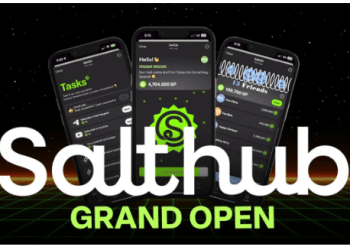Zero-Knowledge Proofs: Enhancing Privacy on Public Blockchains
In a world where blockchain transactions are public by default, privacy is becoming a crucial element for users and institutions. While traditional blockchains like Bitcoin and Ethereum offer transparency and immutability, they expose transaction details to the public, posing privacy risks. This is where Zero-Knowledge Proofs (ZKPs) come in—a revolutionary cryptographic technology that allows one party to prove they have certain information without revealing it. ZKPs are playing a transformative role in making public blockchains more secure and private, enabling private transactions while maintaining trust and decentralization.
1. What Are Zero-Knowledge Proofs (ZKPs)?
A Zero-Knowledge Proof is a cryptographic method in which one party (the prover) can prove to another party (the verifier) that a statement is true without revealing the actual information behind the statement. Introduced by researchers in the 1980s, ZKPs ensure that sensitive data is kept hidden while still proving its validity.
In the blockchain context, ZKPs are used to verify transactions or computations privately, ensuring that key details—like the amount transferred or the identity of the sender—are not exposed to the public network.
2. How ZKPs Enhance Blockchain Privacy
Public blockchains like Bitcoin and Ethereum make all transactions visible to anyone with access to the blockchain ledger. While this transparency ensures security and trust, it raises concerns about financial privacy, particularly for businesses or individuals making sensitive transactions. ZKPs address this by:
- Hiding transaction amounts and identities while ensuring the transaction is valid.
- Verifying compliance with smart contracts without revealing underlying data.
- Enabling confidential business operations, such as payroll or supply chain transactions, on public blockchains without exposing details to competitors.
ZKP-based protocols, such as zk-SNARKs (Zero-Knowledge Succinct Non-Interactive Arguments of Knowledge), allow blockchains to validate transactions with minimal computational resources while maintaining privacy.
3. ZKPs in Practice: Real-World Blockchain Applications
a. Zcash: Private Cryptocurrency Using zk-SNARKs
Zcash was one of the first cryptocurrencies to implement ZKPs for enhanced privacy. It allows users to choose between transparent transactions (like Bitcoin) or shielded transactions, where the sender, receiver, and transaction amount are hidden using zk-SNARKs
. This selective privacy model has made Zcash a pioneer in privacy coins.
b. Tornado Cash on Ethereum
Tornado Cash is a privacy tool that uses ZKPs to obfuscate transactions on Ethereum. It enables users to deposit and withdraw funds from the protocol without linking the two transactions, ensuring privacy while still maintaining the underlying security of Ethereum
.
c. Scaling Solutions and Layer-2 Protocols
ZK-rollups, such as zkSync and StarkNet, leverage ZKPs to bundle multiple transactions into a single proof that can be verified on the Ethereum blockchain. This enhances scalability and reduces gas fees while ensuring that individual transactions remain private
. ZK-rollups are becoming an essential component of Ethereum’s roadmap as the blockchain moves toward greater efficiency.
4. Key Advantages of Zero-Knowledge Proofs
- Privacy and Confidentiality: ZKPs ensure that sensitive data remains hidden from public view while maintaining trust in the blockchain network.
- Enhanced Security: By eliminating the need to reveal transaction details, ZKPs reduce the attack surface for hackers or malicious actors.
- Scalability: ZK-rollups offer a scalable solution by aggregating transactions off-chain, making blockchains faster and cheaper without compromising on privacy.
- Regulatory Compliance: Institutions can use ZKPs to comply with regulations by proving that transactions meet certain criteria—such as anti-money laundering (AML) requirements—without disclosing confidential information.
5. Challenges of Implementing ZKPs on Public Blockchains
While ZKPs offer significant benefits, they come with certain challenges:
- Complexity: Implementing ZKPs requires advanced cryptographic techniques, making development more complex.
- Computational Overheads: Although zk-SNARKs are efficient, generating zero-knowledge proofs still requires significant computational resources.
- Regulatory Uncertainty: Privacy solutions like ZKPs have faced scrutiny from regulators, as they could potentially be used to facilitate illegal activities on public blockchains. Tools like Tornado Cash have been targeted by regulatory bodies, raising concerns about the future of ZKP-based privacy solutions.
6. Future of Zero-Knowledge Proofs in Blockchain Technology
The future of ZKPs looks promising, with several key trends emerging:
- Mainstream Adoption: As regulatory frameworks evolve, ZKPs will likely become a standard feature of public blockchains, enabling private transactions while ensuring compliance.
- Interoperability Solutions: ZKPs will facilitate cross-chain privacy, allowing users to transact privately across multiple blockchain networks.
- Next-Generation Rollups: Innovations like zk-STARKs (a more scalable version of zk-SNARKs) will further enhance the efficiency and security of blockchain networks.
- Institutional Use Cases: Financial institutions and enterprises are exploring ZKPs to facilitate private transactions on public blockchains without sacrificing transparency for auditors and regulators.
Conclusion: The Future of Privacy with ZKPs
As the demand for blockchain-based privacy continues to grow, Zero-Knowledge Proofs (ZKPs) are emerging as a critical technology that balances transparency with confidentiality. From enabling anonymous transactions in projects like Zcash to enhancing scalability with ZK-rollups, ZKPs are transforming the way public blockchains operate. They offer an ideal solution for users seeking privacy, businesses handling confidential data, and institutions complying with regulations.
The adoption of ZKPs is still in its early stages, but their potential to redefine blockchain privacy is undeniable. With continued innovation and regulatory clarity, ZKPs will play a central role in the evolution of blockchain networks, ensuring that the future of decentralized finance is both private and secure.
















